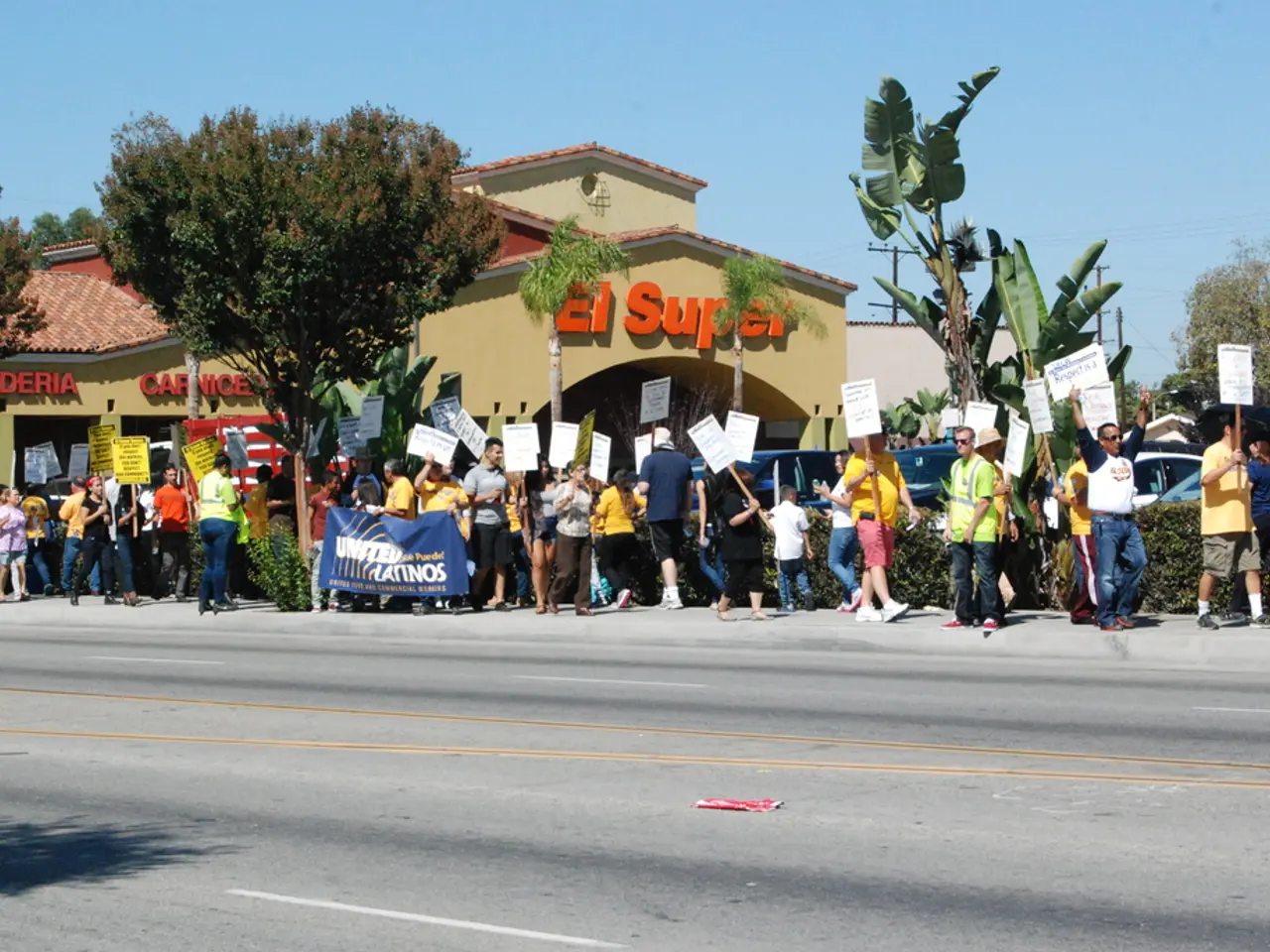Lowering voting age to 16 in historic decision aimed at increasing voter turnout in the UK
In a move hailed as the most significant overhaul to the country's democratic system in more than half a century, the British government has announced plans to lower the national voting age from 18 to 16. This decision, made by the Labour Party under Prime Minister Keir Starmer, follows a platform promising democratic renewal that propelled them to power in 2024.
The proposal, which will extend the vote to teenagers, is a subject of intense debate, with key arguments for and against the move.
On one hand, advocates argue that lowering the voting age can increase civic engagement among young people. By giving them the right to vote, they are more likely to participate in the political process and understand its significance. Additionally, 16-year-olds are legally responsible for certain decisions, such as driving and working, and should thus have a say in the laws that govern their lives. This aligns with the principle of "no taxation without representation."
Lowering the voting age could also lead to better inclusion of civic education in schools, ensuring that young people are informed and prepared for the responsibilities of voting. Extending the vote to 16-year-olds could help ensure that the voices of younger generations are heard and represented in the political arena, potentially leading to policies that better address their needs.
However, critics argue that 16-year-olds might not have the necessary maturity or life experience to make informed decisions about complex political issues. They might be more susceptible to influence from others rather than making independent choices. There is also concern that many young people lack sufficient understanding of politics and civic processes, and without adequate education, they might not be equipped to make informed decisions at the ballot box.
If passed, Britain will join a small group of countries, including Austria, Brazil, and Ecuador, that allow 16-year-olds to vote in national elections. However, the voting age in France, Italy, and Spain remains at 18. This will be the first time teenagers can vote in UK-wide general elections.
The reforms are expected to bring up to 9.5 million additional voters onto the electoral rolls, according to an expert. The legislation to lower the voting age and enact the related changes is expected to pass easily through Parliament, where Labour commands a strong majority.
The British government's electoral reforms are part of a response to a "crisis of democracy." The changes will come into effect before the next general election, scheduled by 2029, pending parliamentary approval. The reforms also include automatic voter registration, acceptance of bank cards as voter ID, stricter campaign finance rules, tougher penalties for candidate intimidation, and greater protections against foreign interference.
Prime Minister Keir Starmer called the move "a matter of fairness," stating that 16- and 17-year-olds are old enough to go out to work and pay taxes. However, politics lecturer Stuart Fox from the University of Exeter suggests that complementary initiatives such as strengthening citizenship education and expanding school-based civic programs could be more effective in the long term for increasing youth turnout.
The change will mark a significant shift in Britain's democratic landscape, potentially increasing youth engagement and ensuring the voices of younger generations are heard. However, it also raises questions about the readiness and maturity of young voters to make informed decisions in complex political matters.
- The proposal to lower the voting age in Britain to 16 is generating discussions, as some believe it will boost youth engagement, while others question the maturity and preparedness of teenagers to make informed political decisions.
- An advocate for the reform suggests that 16-year-olds, who are already legally accountable for decisions like driving and working, should also have a say in the laws that affect their lives.
- A potential downside to lowering the voting age, according to critics, is the concern that young people may lack sufficient understanding of politics and make decisions influenced by others rather than independently.
- The planned lowering of the voting age is part of a broader effort by the British government to address a crisis of democracy, including initiatives like automatic voter registration, stricter campaign finance rules, and tougher penalties for candidate intimidation.








